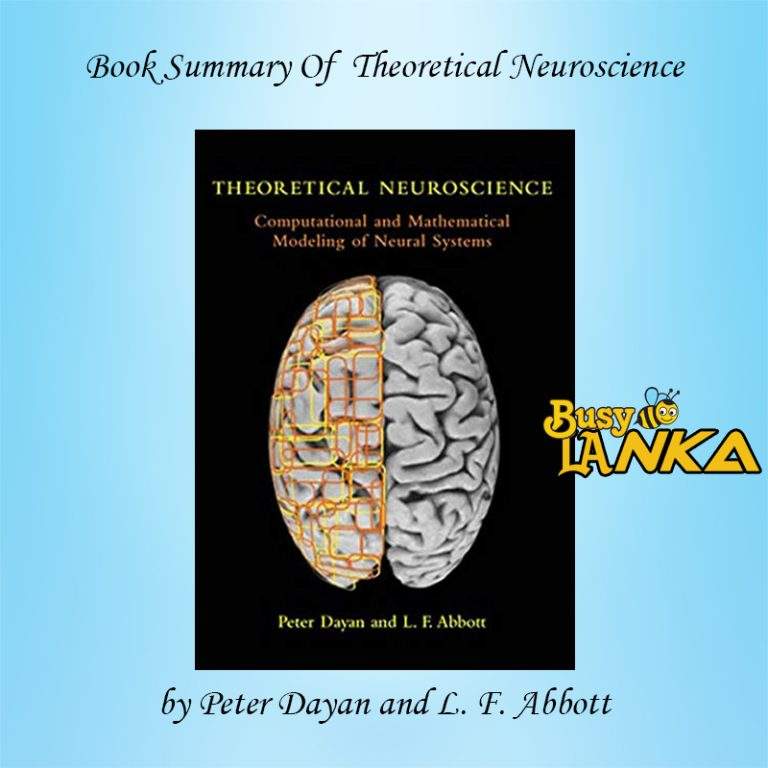“Theoretical Neuroscience” by Peter Dayan and L. F. Abbott is a comprehensive textbook that provides an introduction to the theoretical foundations of neuroscience. The book covers a wide range of topics, from the basics of neural communication to more advanced models of learning and memory.
The book is divided into five parts, with each part covering a different aspect of theoretical neuroscience. In the first part, the authors introduce the basics of neuroscience and neural communication, including the structure and function of neurons, synapses, and neural networks.
In the following parts, the authors cover the fundamental concepts of neural computation, including sensory processing, perception, and motor control. They also explore more advanced models of learning and memory, including reinforcement learning, Hebbian learning, and spike-timing-dependent plasticity.
The book also covers more advanced topics in theoretical neuroscience, such as decision-making, attention, and consciousness. The authors discuss the implications of their models for understanding the brain and behavior, and explore the challenges and limitations of theoretical neuroscience.
Throughout the book, the authors emphasize the importance of interdisciplinary collaboration in neuroscience, drawing on insights from computer science, mathematics, physics, and philosophy. They also highlight the need for experimental validation of theoretical models, and provide examples of experimental studies that support or challenge theoretical predictions.
“Theoretical Neuroscience” is a comprehensive and authoritative textbook that provides a thorough introduction to the theoretical foundations of neuroscience. The authors’ expertise and engaging writing style make this book an accessible and informative read for students and researchers in neuroscience and related fields.













